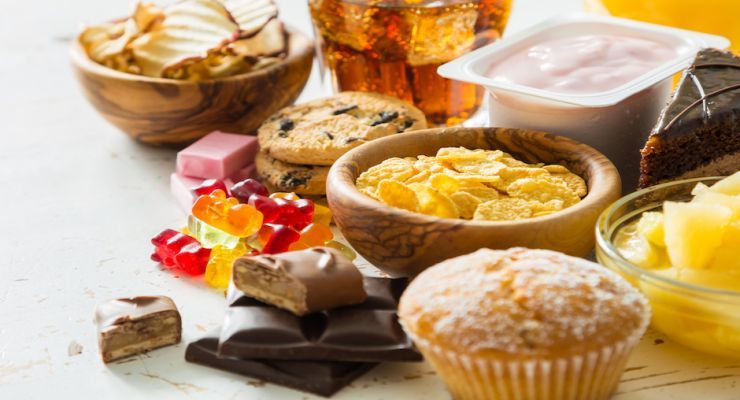Most people are well aware of the connection between sugary snacks and desserts and the obesity epidemic. Sugar wreaks havoc on your body, causing serious diseases and pain along with inflammation and type 2 diabetes, to name just a few. However, there is an even darker side of America’s sugar addiction that is often overlooked. Sugar can actually affect your mental health, leading to issues like anxiety, depression, and mood swings.
There is a reason that some food is called “comfort food.” Many people turn to sugar and carb-loaded food when they’ve had a bad day or are experiencing feelings of hopelessness. Unfortunately for those who use sugar as a coping mechanism, it can actually just increase those poignant emotions. Sugar creates a feeling of a “high” along with a rush of endorphins that course through your body. The problem with this, however, is that this relief is only temporary and when your body tries to restabilize from the spike in blood sugar levels, you may experience increased feelings of panic, worry, or nervous behavior.
There have been a few studies conducted on rats that show a significant link between excessive processed sugar intake and the increase in anxiety. That doesn’t mean that sugar is causing anxiety directly, but it can exacerbate anxiousness in those already struggling.
Anxiety is often the result of a stressful situation or time in your life, and when you use sugar to mask and hide your struggles, you are hampering-term recovery. Living in a constant state of stress leads to burnt out adrenals, excessive weight gain, and a heightened fight or flight response. Self-medicating with sugary foods is only fueling the fire.
Keep in mind, that simply changing your diet or cutting out sugar will not necessarily remove your anxiety entirely. You have to deal with the issue at the source and it may be essential to seek professional counsel. Every situation is different, and every person responds to the pressures of life in various ways. However, cutting out sugar will have some effect on your mental and physical well-being and is an excellent first step to take on the path to a peaceful, balanced life.
Ways to help ease anxiety
Change your diet
Though this one should be obvious, switching to a natural, whole food diet can increase brain function and encourage feelings of calm and well-being.
Exercise
Daily, rigorous exercise is often just what the doctor ordered. When you exercise, a rush of endorphins floods your system and causes you to only focus on the task at hand. This allows you to block out what is causing your anxiety and burn off negative, anxious energy.
Meditation
Mediation can take on many forms, but one of the most effective is mindfulness meditation. Spend a few minutes each day focusing only on your breathing. Clear all thoughts out of your mind and simply inhale and exhale deeply. Meditating during yoga has also proven to be helpful as it combines physical and mental exercise.
Keep a journal
Write a journal every day. You don’t have to write some epic, long-winded journal entry, simply clear your mind and allow your hand to flow freely across the page. Don’t worry about your handwriting or proper punctuation. This is merely an outlet for you to express your racing thoughts and get them out of your head and on to paper. Gratefulness journals are also useful tools as they cause you to think deeply about all the good things in your life rather than focusing on the negative.
Time management and scheduling
Often, anxiety can stem from a sense of panic or worry that you will forget something or will not be able to accomplish everything you need to on any given day. Employing effective time management strategies will allow you to budget time for everything in your life, from socializing to work to cleaning. Take every day one step at a time and be careful not to over-commit. Don’t be afraid to say no.
Essential oils
Inhaling or diffusing essential oils, particularly calming oils like lavender has been shown to reduce heart rate and improve sleep quality. They also help to restore mental clarity and focus. Diffuse essential oils in a diffuser, or simply place a few drops of lavender oil in your palms and cup your hands over your nose and inhale.
-Susan Patterson

